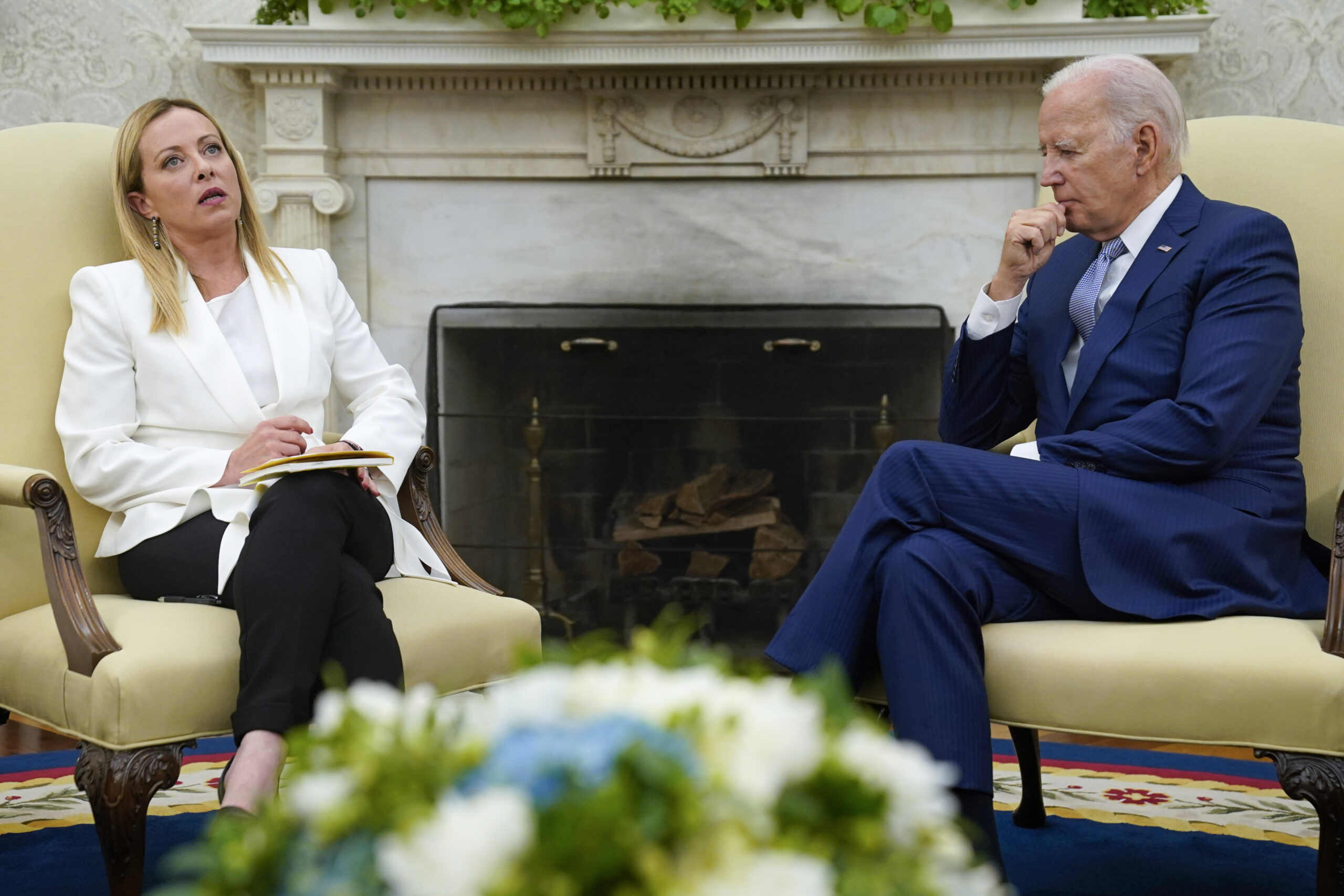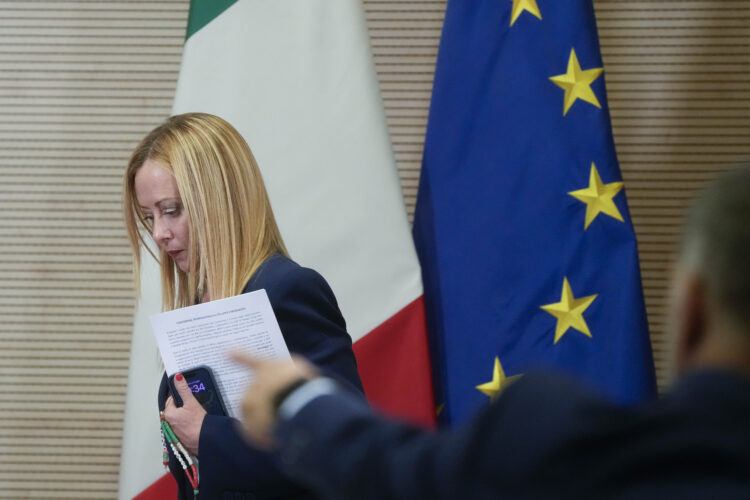The Italian government implemented—and then quickly scaled back—a plan to impose a surprise, one-off windfall tax on the profits of Italy’s largest banks earlier this week. But while an unforeseen market downturn prompted a quick clarification from the government, Prime Minister Giorgia Meloni defended the decision to target “banks’ unjust margins.”

Giorgia Meloni, Italy’s first female prime minister, took office in October 2022 when the nationalist Brothers of Italy (Fratelli d’Italia) Party won a plurality in a general election. Meloni’s populist leanings and her outspoken criticism of gender theory, abortion, and COVID lockdowns quickly had media outlets and other world leaders—including President Joe Biden—labeling her a “right-wing nationalist” and “a threat to democracy.” In another notable reaction, the Washington Post called her the “most ultra-nationalist premier since fascist dictator Benito Mussolini.”
In actuality, Meloni’s time in office has proved far milder than that of the former dictator. Rather than waging a campaign against democracy itself, as her critics predicted, the prime minister has mainly been focused on fighting runaway inflation threatening Italy’s economy. A number of economic reforms have been passed in recent months to accomplish this.
Among the proposed reforms was the idea of placing a tax on 40% of the net interest margin earned by banks between 2022 or 2023 with a goal of redistributing profits that were not evenly passed along to customers. Many banks in Italy are now making 4% interest on customer deposits, but most citizen bank accounts earn no interest at all.
Learn the benefits of becoming a Valuetainment Member and subscribe today!
Last year, Italy raised nearly 3 billion euros from a similar windfall tax on energy companies that profited off of rising oil and gas prices. Meloni’s government toyed with the idea of applying this strategy to banks for quite some time, but all signs indicated it had been dropped—making the sudden implementation of the policy on Monday night a surprise even to many cabinet ministers.
The tax was announced in an evening press conference, which Meloni and Economy Minister Giancarlo Giorgetti did not attend. The following day, bank shares plummeted by as much as 7.3%, leaving markets scrambling. Late on Tuesday, the Economy Ministry clarified that the tax would be capped at no more than 0.1% of each bank’s total assets. This announcement returned some stability to the market, bank shares rebounded, and analysts estimated that the cap on the tax will still bring roughly 1.9 billion euros ($2.1 billion) into state coffers.
Despite the market hiccups, Meloni and her administration still stand behind the windfall tax policy, which still remains in place. The government “has approved several measures, the most important of which is the taxation on banks’ unjust margins,” Meloni said in a Facebook video.
But while the Italian government maintains that this tax will only apply to a single year’s profits, many are bracing for the potential of a repeat in 2024 given the precedent established this week.


















Add comment